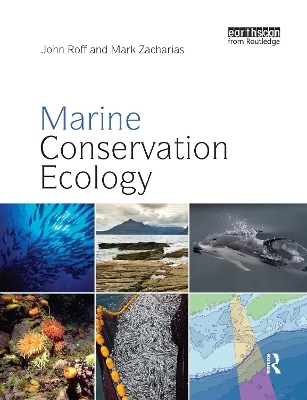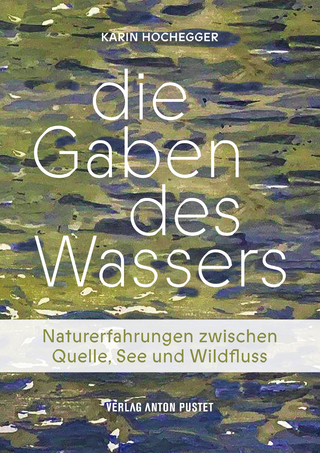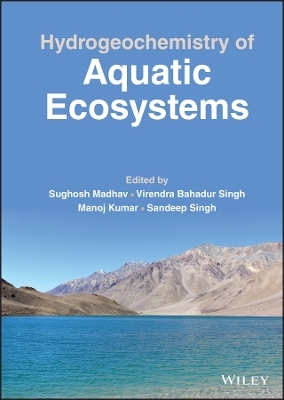
Marine Conservation Ecology
Earthscan Ltd (Verlag)
978-1-84407-884-4 (ISBN)
This major textbook provides a broad coverage of the ecological foundations of marine conservation, including the rationale, importance and practicalities of various approaches to marine conservation and management. The scope of the book encompasses an understanding of the elements of marine biodiversity - from global to local levels - threats to marine biodiversity, and the structure and function of marine environments as related to conservation issues.
The authors describe the potential approaches, initiatives and various options for conservation, from the genetic to the species, community and ecosystem levels in marine environments. They explore methods for identifying the units of conservation, and the development of defensible frameworks for marine conservation. They describe planning of ecologically integrated conservation strategies, including decision-making on size, boundaries, numbers and connectivity of protected area networks. The book also addresses relationships between fisheries and biodiversity, novel methods for conservation planning in the coastal zone and the evaluation of conservation initiatives.
John Roff was Professor and Canada Research Chair in Environmental Science and Conservation at Acadia University, Canada, and is now European Scholar in the EU Erasmus Mundus Programme. Mark Zacharias is Adjunct Associate Professor of Geography at the University of Victoria, Canada, and Assistant Deputy Minister with the Province of British Columbia, Canada. The book also includes earlier contributions by Jon Day, who is currently Director, Ecosystem Conservation and Sustainable Use, with the Great Barrier Reef Marine Park Authority in Australia. Jon's contributions primarily occurred during the late 1990s when he was working in North America, but today Jon's expertise is widely recognized in marine spatial planning and marine management matters.
Preface. Marine Conservation Ecology: Concepts and Frameworks 1. Introduction: Why Marine Conservation is Necessary – Significance, Threats, and Management of the Oceans and Biodiversity 2. The Marine Environment: Physico-chemical Characteristics – Structures and Processes, Enduring and Recurrent factors 3. The Marine Environment: Ecology and Biology Pelagic and Benthic Realms and Coastal Fringing Communities 4. Approaches to Marine Conservation Traditional Strategies and Ecological Frameworks 5. Representative Areas: Global to Ecoregional – Marine Conservation at the Ecosystem / Habitat Level 6. Habitats and Communities: Ecoregional to Local – Reality, Variability and Scales of Relationships 7. Distinctive Areas: Species and Ecosystem Processes Ecosystem Processes – Ergoclines and Hotspots 8. Patterns of Biodiversity: Species Diversity – Theories and Relationships: Global, Regional, Local 9. Species and Focal Species – Keystones, Umbrellas, Flagships, Indicators and Others 10. Genetic Diversity Significance of Genetics: From Genes to Ecosystems 11. Coastal zones Components, Complexities and Classifications 12. High Seas and Deep Seas Pelagic and Benthic, Hydrography and Biogeography 13. Linking Fisheries Management with Marine Conservation Objectives through Ecosystem Approaches – Compatibility of Exploitation and Preservation 14. Size and Boundaries of Protected Areas – Rationale for Function, Location, Dimensions 15. Evaluation of Protected Areas – The Concept of 'Value' as Applied to Marine Biodiversity 16. Sets of Protected Areas – Integrating Distinctive and Representative Protected Areas 17. Networks of Protected Areas – Patterns of Connectivity in the Oceans 18. Approaches to the Establishment of Marine Monitoring Programs – Stabilizing the Baselines 19. Remaining Problems in Marine Conservation – Present Problems, Future Solutions. Index
| Erscheint lt. Verlag | 18.4.2011 |
|---|---|
| Reihe/Serie | Earthscan Oceans |
| Verlagsort | London |
| Sprache | englisch |
| Maße | 189 x 246 mm |
| Gewicht | 1065 g |
| Themenwelt | Naturwissenschaften ► Biologie ► Limnologie / Meeresbiologie |
| Naturwissenschaften ► Biologie ► Ökologie / Naturschutz | |
| ISBN-10 | 1-84407-884-1 / 1844078841 |
| ISBN-13 | 978-1-84407-884-4 / 9781844078844 |
| Zustand | Neuware |
| Haben Sie eine Frage zum Produkt? |
aus dem Bereich


